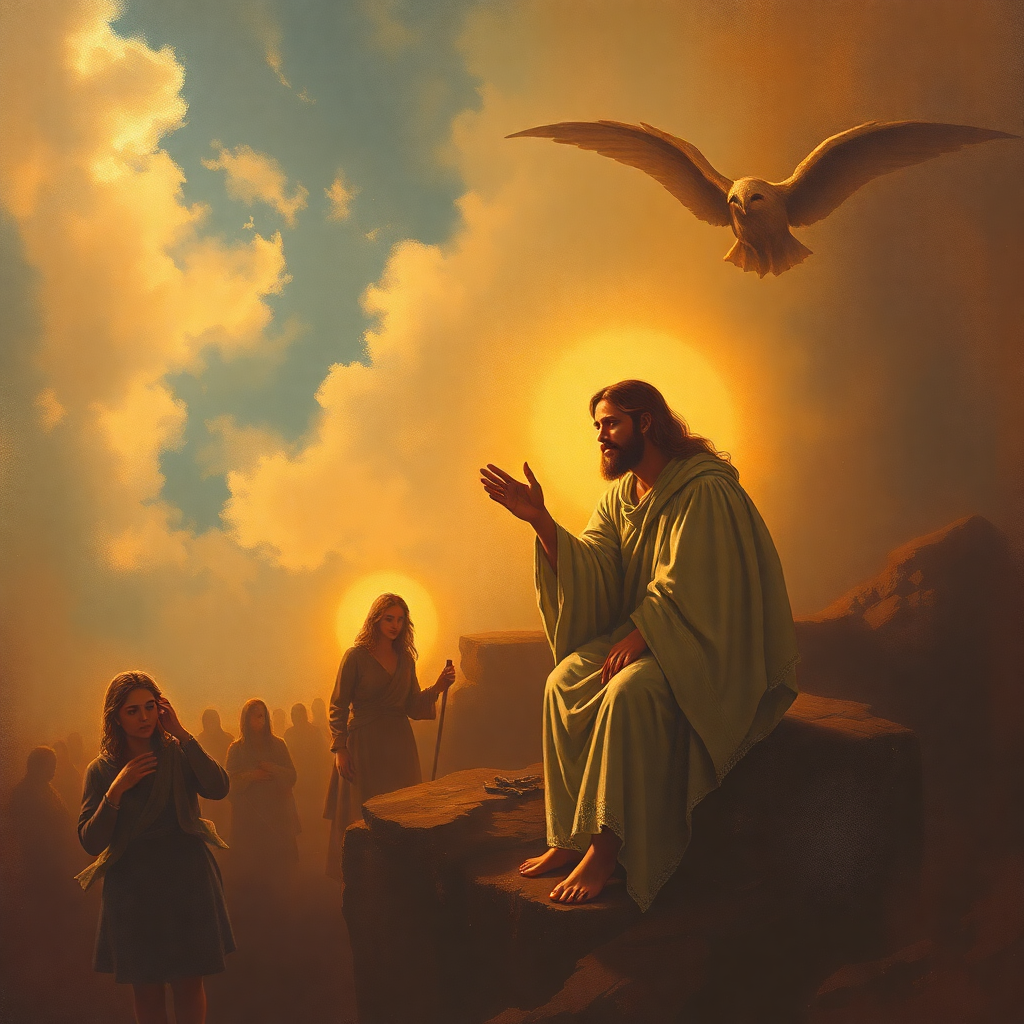Zacchaeus in the Bible: A Story of Transformation and Grace
He promised to give half of his possessions to the poor and to repay anyone he had defrauded four times the amount—far exceeding the Jewish law's requirement of adding one-fifth to the principal.
The story of Zacchaeus stands as one of the most beloved and powerful narratives in the New Testament. Found in Luke 19:1-10, this brief but profound encounter between Jesus and a despised tax collector reveals timeless truths about redemption, transformation, and the inclusive nature of divine love.
Who Was Zacchaeus?
Zacchaeus was a chief tax collector in the wealthy city of Jericho during the time of Jesus' ministry. His position made him both financially successful and socially despised. Tax collectors in first-century Palestine were viewed as traitors by their fellow Jews because they worked for the occupying Roman government and were notorious for collecting more than required, keeping the excess for themselves.
The Gospel of Luke describes Zacchaeus as a wealthy man who was "short in stature." This physical detail becomes crucial to the story's development, as it explains why he climbed a sycamore tree to see Jesus when the crowd gathered along the road.
The Encounter with Jesus
When Jesus entered Jericho, crowds lined the streets to catch a glimpse of the famous teacher and healer. Zacchaeus, despite his wealth and position, found himself unable to see over the crowd due to his short height. Rather than give up, he ran ahead and climbed a sycamore tree along the route Jesus would take.
The moment that changed everything came when Jesus reached the tree. Looking up, Jesus called Zacchaeus by name and invited himself to the tax collector's house: "Zacchaeus, hurry and come down, for I must stay at your house today." This simple invitation scandalized the crowd, who began to grumble that Jesus had gone to be the guest of a sinner.

The Transformation
Zacchaeus' response to Jesus' acceptance was immediate and radical. He not only welcomed Jesus joyfully but also made a public declaration that revealed the depth of his transformation. He promised to give half of his possessions to the poor and to repay anyone he had defrauded four times the amount—far exceeding the Jewish law's requirement of adding one-fifth to the principal.
This wasn't merely a financial transaction or an attempt to buy forgiveness. Zacchaeus' actions demonstrated genuine repentance and a complete reorientation of his values and priorities. His wealth, once used for personal gain at others' expense, would now serve justice and compassion.
Jesus' Declaration
Jesus' response to Zacchaeus' transformation is profound: "Today salvation has come to this house, because he too is a son of Abraham. For the Son of Man came to seek and to save the lost." This declaration accomplished several important things:
It affirmed Zacchaeus' place in the covenant community as a "son of Abraham," restoring his religious and social standing. It also proclaimed that salvation had arrived not through ritual or religious performance, but through the transformative encounter with Jesus himself.
Lessons from Zacchaeus
The story of Zacchaeus offers several enduring lessons for readers across the centuries. First, it demonstrates that no one is beyond the reach of grace. Zacchaeus represented one of the most despised categories of people in Jewish society, yet Jesus sought him out and offered him acceptance and transformation.
Second, the story shows that genuine repentance produces tangible change. Zacchaeus didn't just feel sorry for his past actions; he took concrete steps to make amends and reorder his life according to new values.
Third, the narrative reveals Jesus' mission to seek and save the lost. Rather than waiting for people to come to him, Jesus actively pursued those who were marginalized and rejected by society.
The Broader Context
The story of Zacchaeus appears near the end of Luke's Gospel, as Jesus makes his final journey to Jerusalem. It serves as a powerful illustration of the Gospel's central themes: God's love for outcasts, the possibility of radical transformation, and the inclusive nature of salvation.
The encounter also contrasts sharply with the story of the rich young ruler earlier in Luke's Gospel, who went away sad because he couldn't part with his wealth. Zacchaeus, by contrast, joyfully gave away his riches, demonstrating that wealth itself isn't the barrier to discipleship—attachment to wealth is.
Relevance Today
The story of Zacchaeus continues to resonate in contemporary contexts. It speaks to anyone who has felt excluded, rejected, or beyond hope. It challenges communities of faith to examine their own prejudices and to extend welcome to those society might consider unworthy.
The narrative also addresses the relationship between faith and social justice. Zacchaeus' transformation wasn't merely personal or spiritual; it had immediate social and economic implications. His commitment to restitution and generosity demonstrated that authentic faith must express itself in concrete acts of justice and compassion.
Conclusion
The brief encounter between Jesus and Zacchaeus packs an enormous theological and emotional punch. In just ten verses, Luke presents a masterful portrait of grace, transformation, and hope. The tax collector who climbed a tree out of curiosity descended as a changed man, his life forever altered by an invitation to relationship with Jesus.